What is dog anxiety - Recognizing the signs and symptoms
Dog anxiety is a state of distress or unease that can affect canines of all breeds and ages. It's characterized by a range of behavioral and physical symptoms in response to perceived threats or stressors. Recognizing these signs is crucial for proper management and support of your furry friend.
Common signs a dog is anxious include:
- Excessive barking or whining
- Pacing or restlessness
- Trembling or shaking
- Panting when not hot or exercised
- Hiding or seeking constant reassurance
- Destructive behaviors like chewing furniture
- Loss of appetite
- Accidents in the house
Physical symptoms may include dilated pupils, rapid heart rate, excessive shedding, tense muscles, lip licking, yawning, and ears pinned back. Remember, anxiety dogs symptoms can vary between individuals. Some may exhibit multiple signs, while others might only show one or two. Spotting these symptoms early allows for prompt intervention and support.
Dogs with anxiety - Common causes and triggers
Now that you can recognize the signs, let's explore what causes anxiety in dogs with anxiety. Understanding these triggers is key to helping them cope:
- Loud noises (thunderstorms, fireworks)
- Changes in routine or environment
- Unfamiliar people or animals
- Car rides or visits to new places
- Past trauma or lack of socialization
- Being left alone (separation anxiety)
- Medical issues
- Genetic predisposition
- Lack of exercise or mental stimulation
Interestingly, even owner behavior and energy can play a role in why dogs develop anxiety. Being aware of these factors can help you create a more comfortable environment for your pet. Speaking of being left alone, let's dive deeper into a common form of anxiety that many dog owners face.
Separation anxiety in dogs - Symptoms and impact
Separation anxiety is a common issue affecting up to 20% of dogs in the United States. It occurs when dogs become distressed upon being left alone, and can significantly impact both the dog's wellbeing and their owner's lifestyle.
Symptoms of separation anxiety include:
Excessive barking or howling when alone, destructive chewing or scratching, excessive drooling or panting, and escape attempts.
The impact can be severe. Dogs may experience significant emotional distress, while owners often face property damage, noise complaints from neighbors, and limitations on their ability to leave home. Recognizing and addressing these symptoms early is crucial for both you and your furry friend's quality of life. But don't worry - there are effective strategies to help your anxious pup.
 How to help anxious dogs - Effective strategies and techniques
How to help anxious dogs - Effective strategies and techniques
Ready to take action? Here are some effective strategies to help anxious dogs and reduce anxiety in dogs:
- Create a safe space for your dog to retreat when feeling anxious
- Establish a consistent routine to provide predictability
- Use positive reinforcement to reward calm behavior
- Provide mental and physical stimulation through exercise and puzzle toys
- Try calming aids like ThunderShirts or pheromone diffusers
- Practice gradual desensitization to anxiety triggers
- Consider medication in severe cases, under veterinary guidance
One particularly effective tool is the puzzle feeder. These interactive toys serve multiple purposes in managing dog anxiety:
- Distraction: Puzzle feeders engage your dog's problem-solving skills, redirecting their focus away from stressors.
- Fun Mealtime: They transform eating into an enjoyable activity, helping dogs associate being alone with positive experiences.
- Mental Exercise: The effort required to solve these puzzles can tire out your dog mentally, often resulting in a calmer pet overall.
By incorporating puzzle feeders into your dog's routine, you're not just feeding them – you're providing a valuable tool for managing anxiety and promoting overall well-being. But what if you're looking for more natural approaches? Let's explore some options.
Natural remedies for anxiety in dogs

If you're looking to calm dog anxiety naturally, consider these options:
- Regular exercise and mental stimulation
- Calming supplements like L-theanine or chamomile
- Aromatherapy with pet-safe essential oils
- Pressure wraps like ThunderShirts
- Music therapy with soft classical tunes
- Massage and acupressure techniques
While these natural remedies for anxiety for dogs can be effective, always consult your vet before starting any new treatment, especially for severe cases. They can guide you on the best approach for your unique pup. In some cases, your vet might recommend considering pharmaceutical options.


Dog separation anxiety medications - When to consider pharmaceutical options
For dogs with severe separation anxiety, medication may be part of a comprehensive treatment plan. Common options include:
- Fluoxetine (Reconcile)
- Clomipramine (Clomicalm)
- Alprazolam (Xanax)
- Trazodone
When considering what to give a dog for anxiety, it's crucial to work closely with your veterinarian. They'll determine the most appropriate medication and dosage based on your dog's specific needs and health status.
Remember, medication is typically used in conjunction with behavior modification techniques for the best results. Now, let's look at how to tackle severe cases of anxiety in dogs.
Preventing and managing severe anxiety in dogs

For dogs suffering from severe anxiety, a multi-faceted approach is often necessary. Key strategies include:
- Creating a safe, comforting space
- Establishing a consistent daily routine
- Practicing gradual desensitization to triggers
- Increasing exercise and mental stimulation
- Considering medication under veterinary guidance
- Seeking help from a professional behaviorist
Remember, managing severe anxiety takes time and patience. Stay consistent with your approach and don't hesitate to seek professional help. With the right strategies and support, you can help your anxious dog lead a happier, more relaxed life.
Empowering your dog to overcome anxiety
As we've explored, dog anxiety is a complex issue with various causes and manifestations. By understanding the signs, identifying triggers, and implementing targeted strategies, you can make a significant difference in your furry friend's life.
Puzzle feeders can play a crucial role in this process by distracting your dog from stressors, making mealtime fun, and providing mental exercise that tires them out.
Whether you opt for natural remedies, behavioral techniques, or medication under veterinary guidance, the key is consistency and patience. Keep up the great work – your dedication to your dog's well-being is truly admirable!

Check out our wide selection of bowls and feeding mats and decide which one is best for your dog's needs!


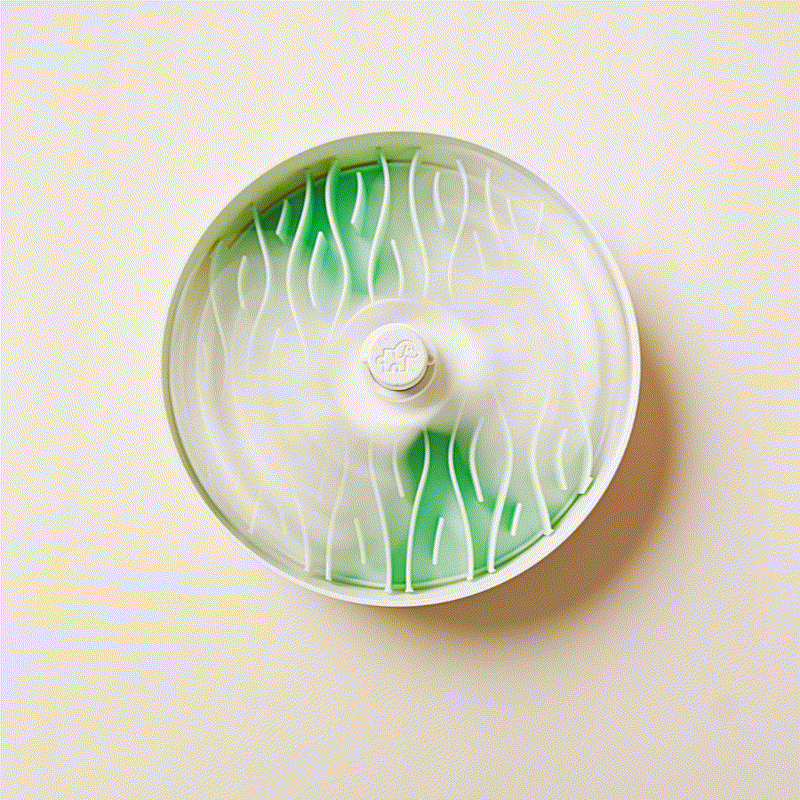
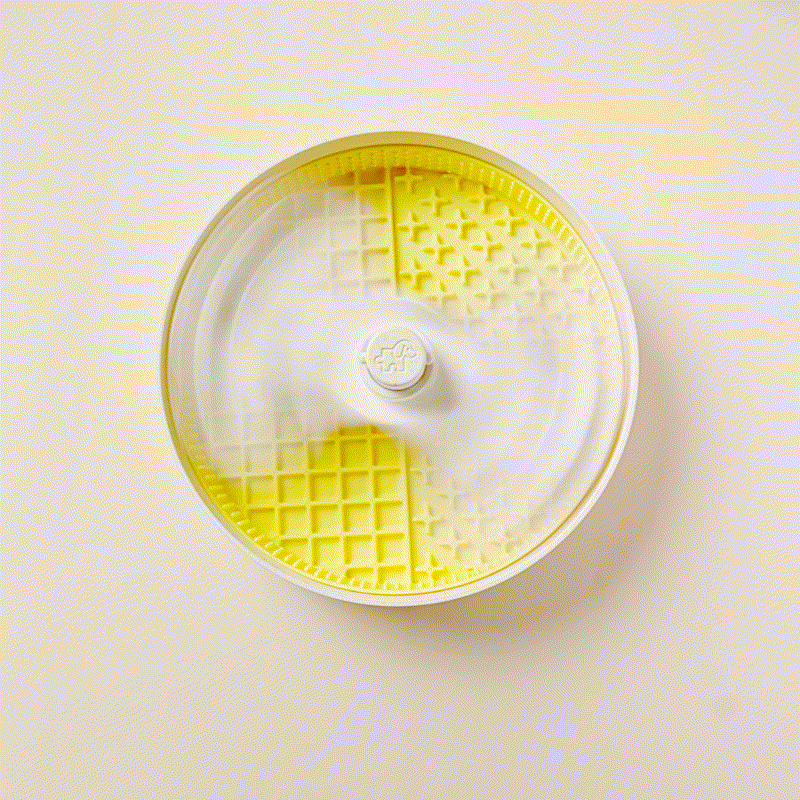


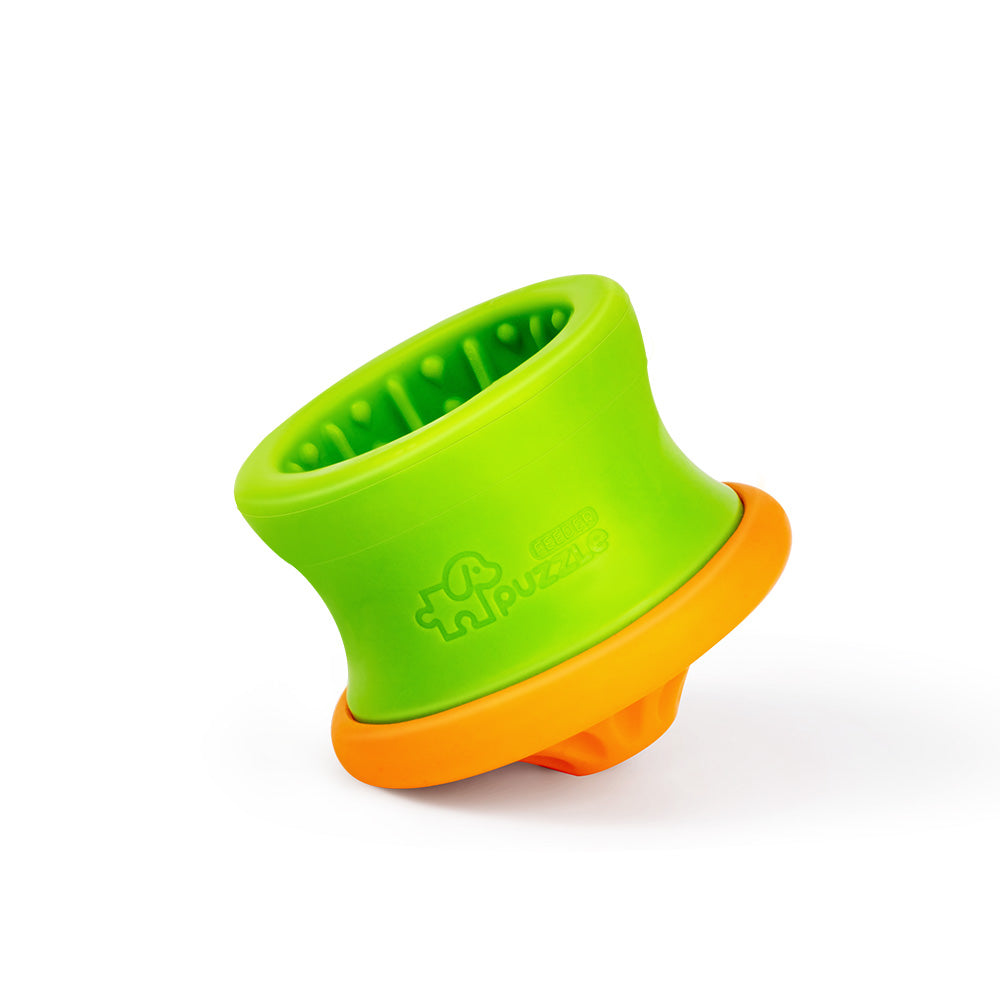
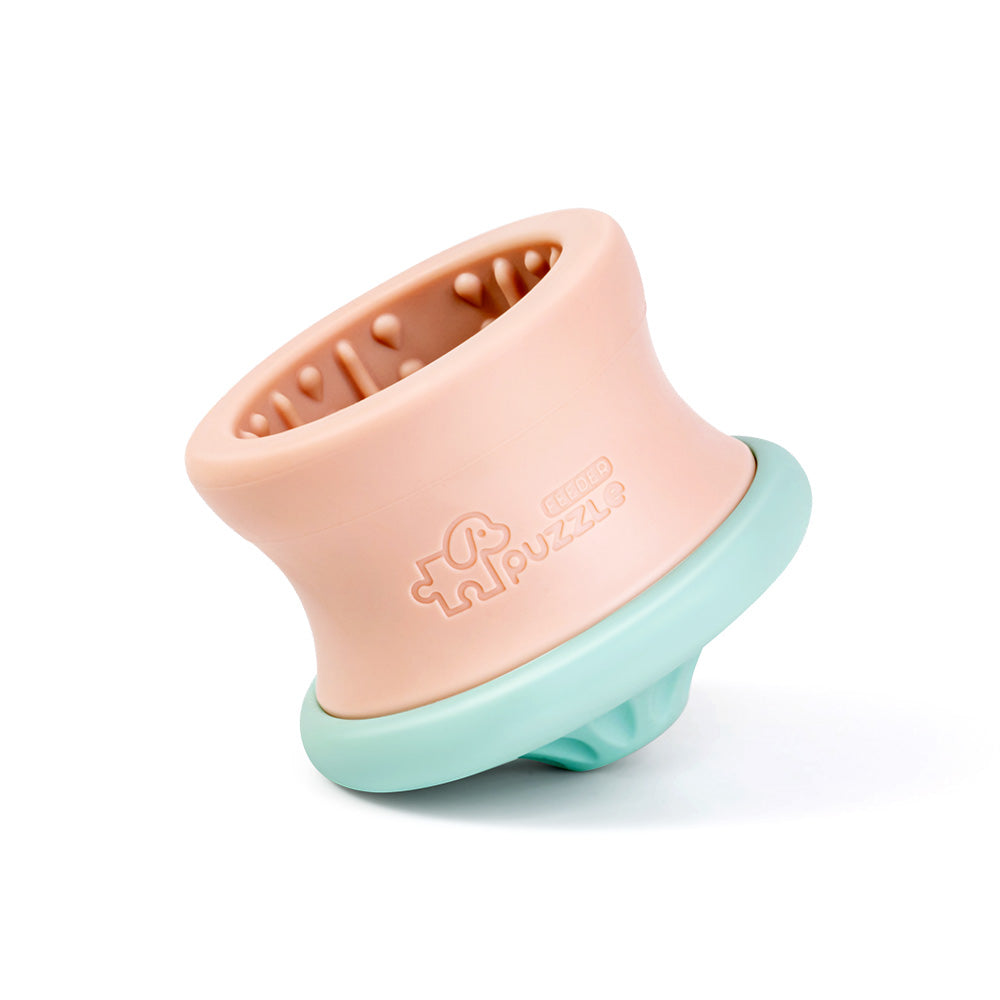


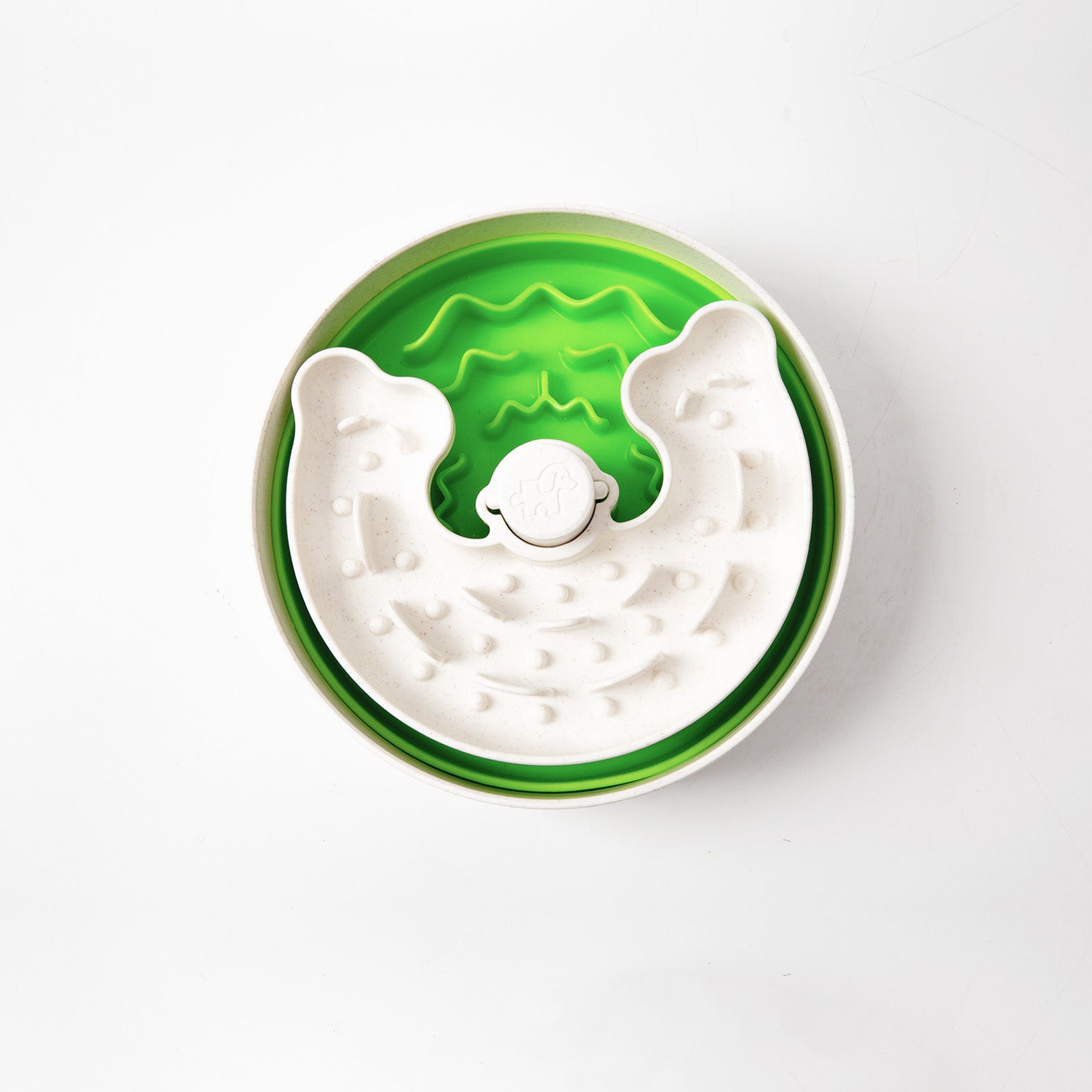
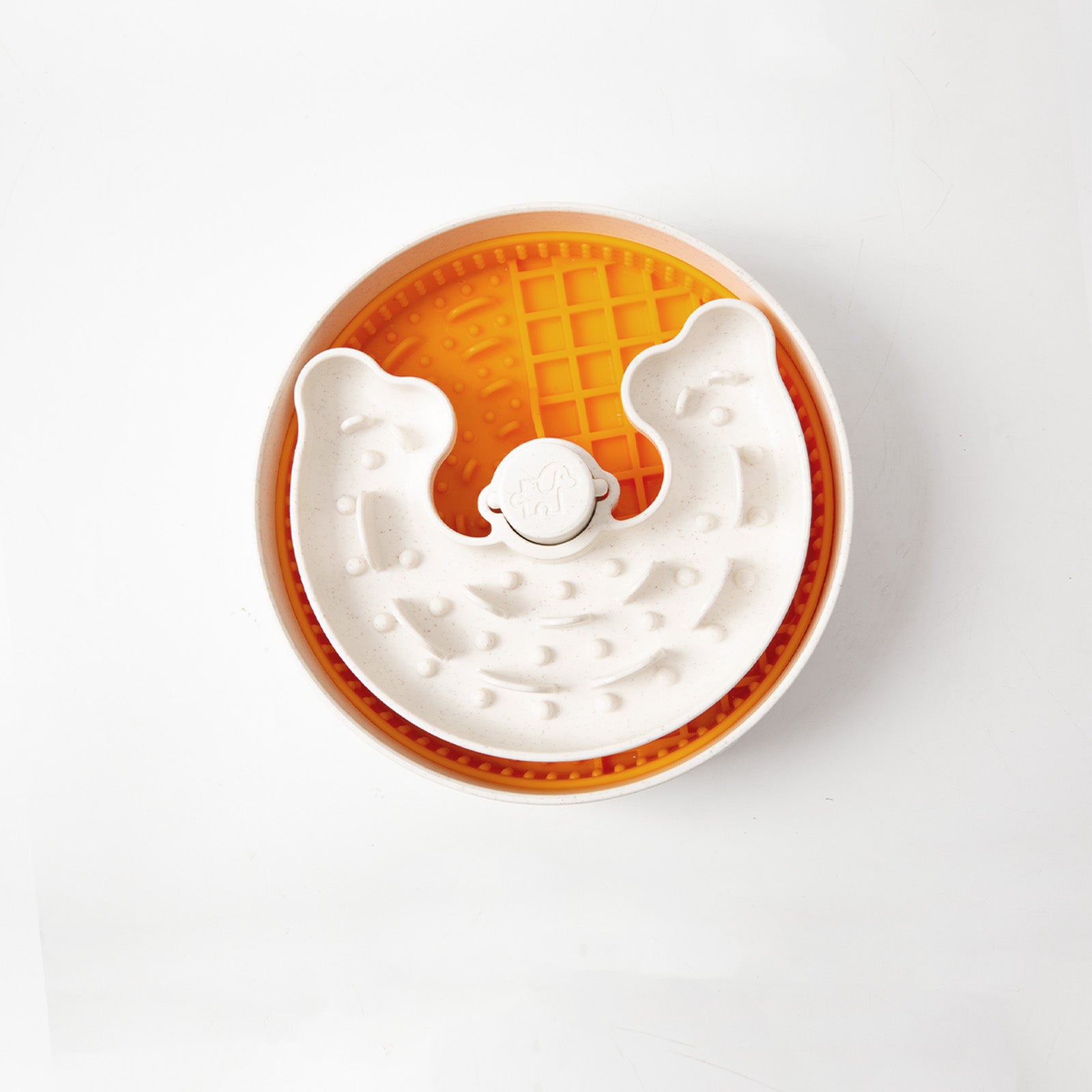
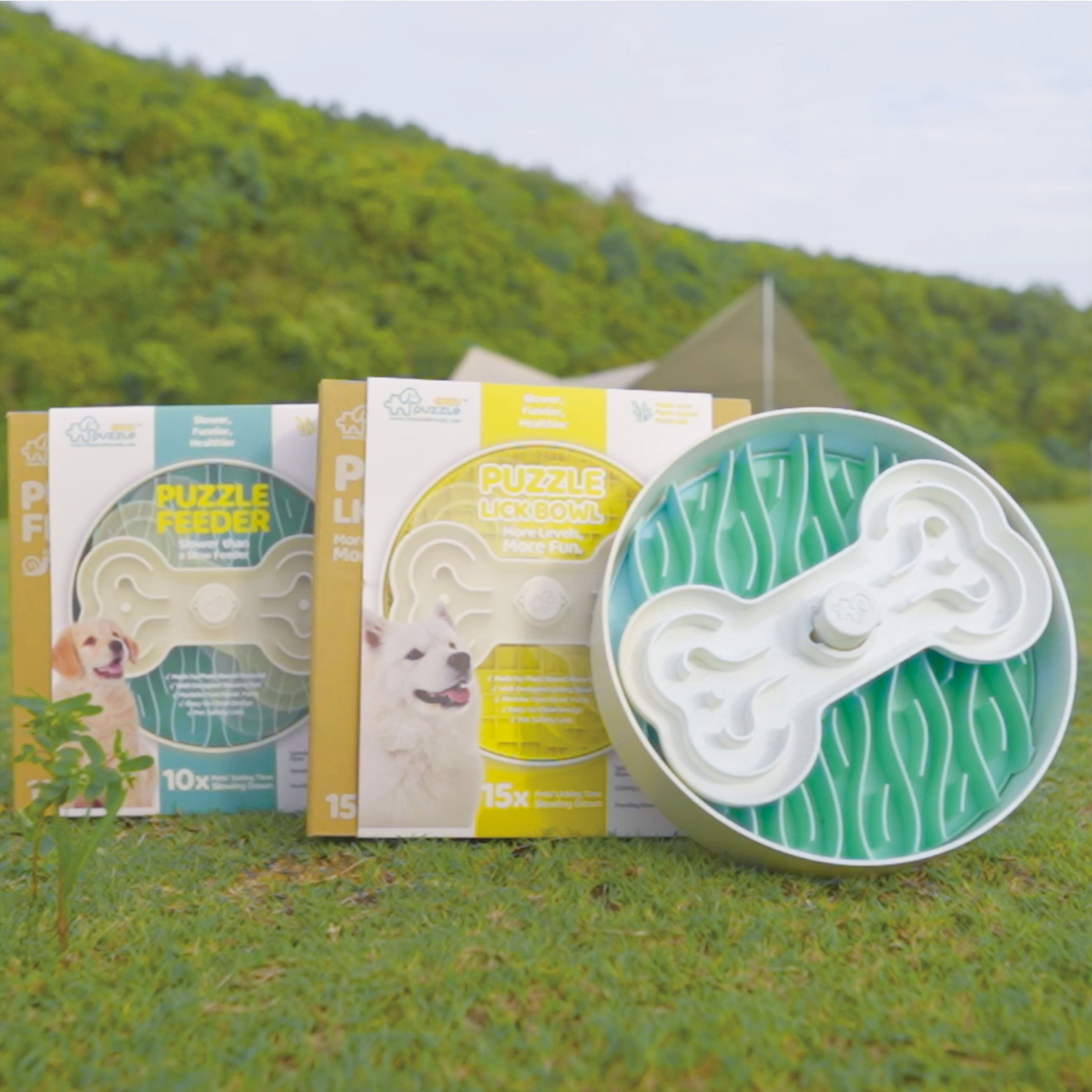


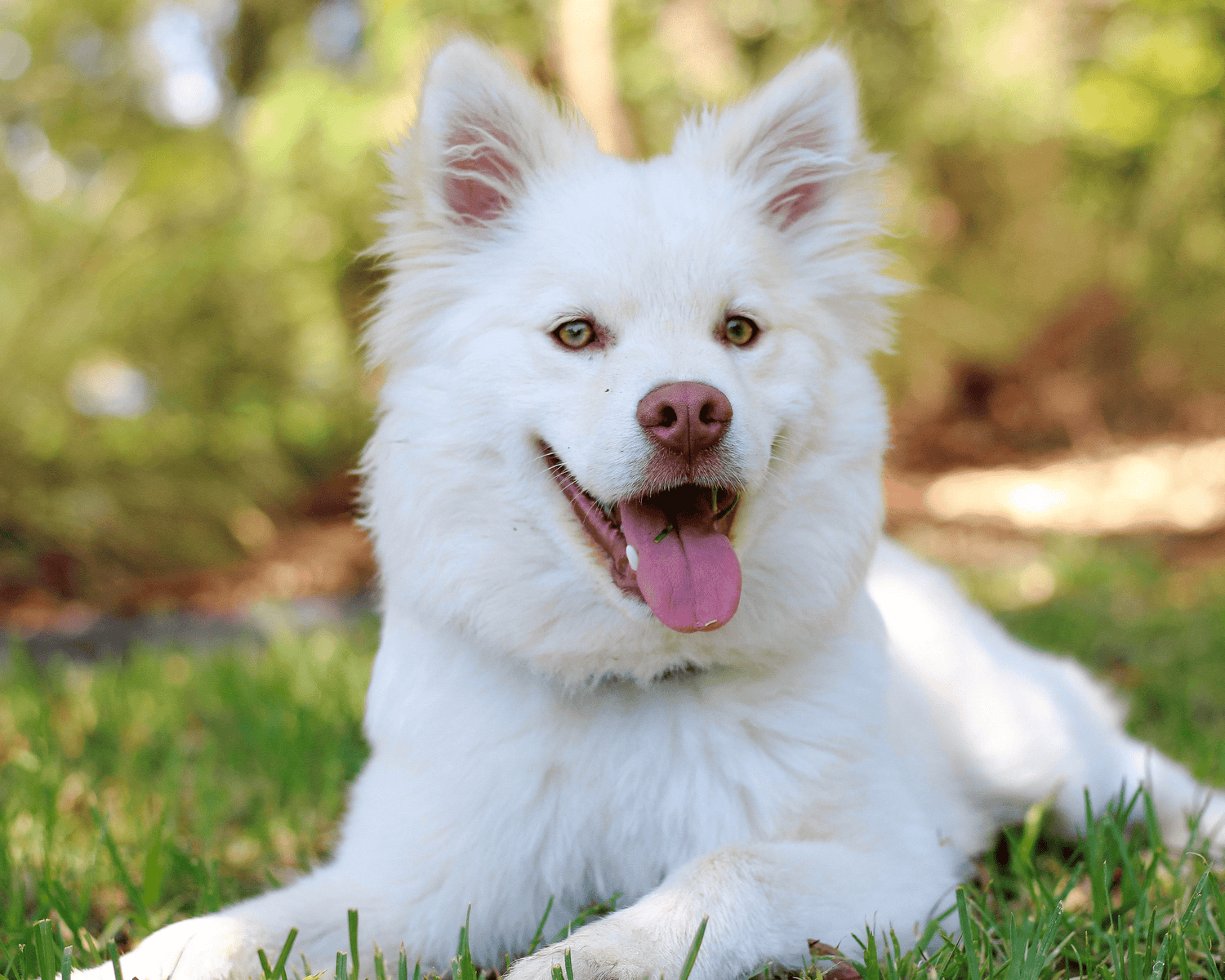

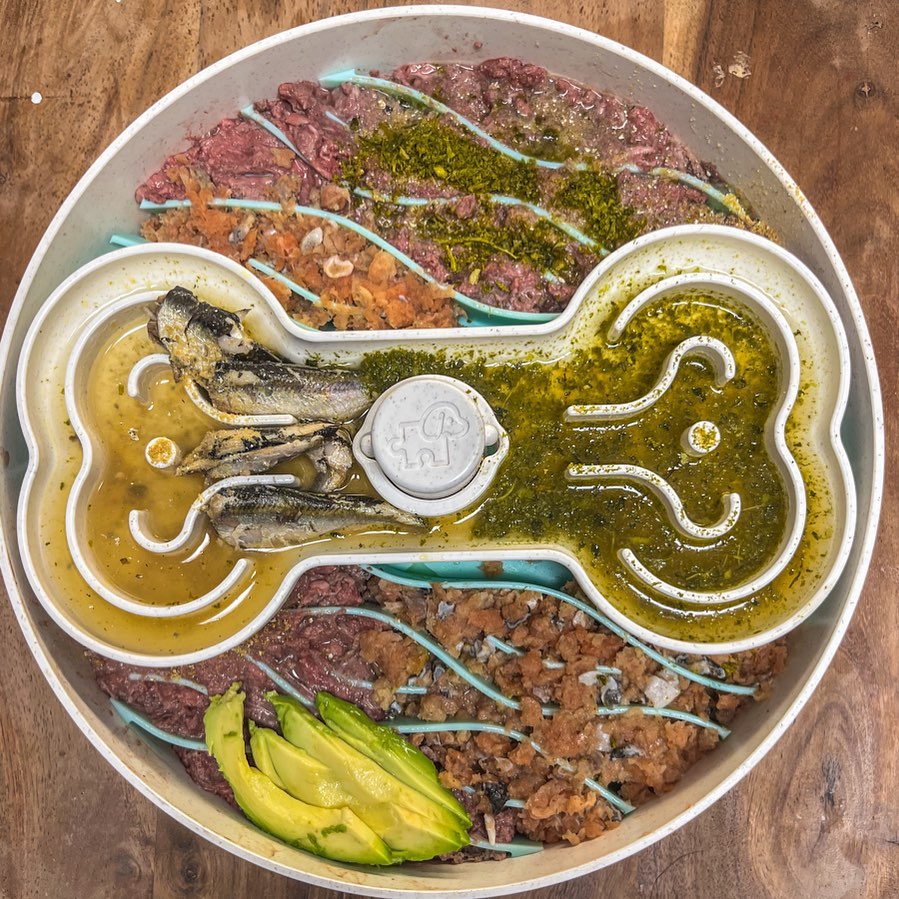

Leave a comment
This site is protected by hCaptcha and the hCaptcha Privacy Policy and Terms of Service apply.